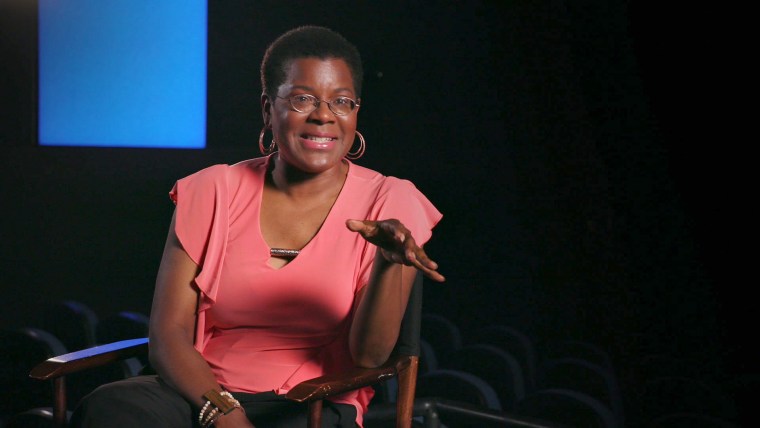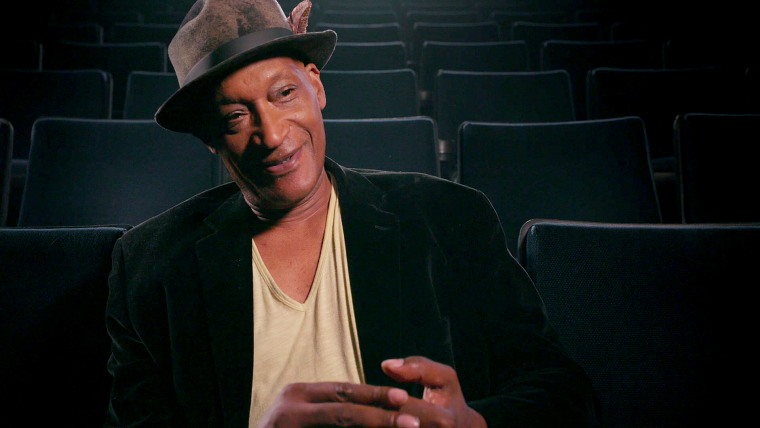Black horror is having a much-deserved moment in Hollywood right now, thanks to Jordan Peele’s Oscar-winning film “Get Out,” the anticipated thriller “Us” and an upcoming reboot of “The Twilight Zone."
But the recent documentary “Horror Noire,” which is streaming on Shudder, reminds us before we got lost in “the sunken place,” black people have always had a relationship with the popular genre, even if “horror hasn’t always loved us.”
Based off Robin Means Coleman’s nonfiction book “Horror Noire: Blacks in American Horror Films from the 1980s to the Present,” director Xavier Burgin and writers Coleman, Ashlee Blackwell and Danielle Burrows lay out that history, which includes the first black horror film “Son of Ingagi” (1940), “Night Of The Living Dead,” a slew of scary blaxploitation horror films in the ‘70s and the 1993 film “Candyman.”
“If you are a horror fan or someone who wants to see black excellence that has been hidden from the mainstream, this is a film that you should watch,” director Xavier Burgin told NBCBLK.
Even in that excellence, “Horror Noire” points out that like many films made in Hollywood, when it comes to horror, African-American characters also haven’t been treated with respect. Black characters have often been written as flat stereotypes such as the Magical Negro or nonfactor background characters who seem to either be props to the main white characters or as the cultural joke puts it, are always the “ones that die first.” That, or they have been actually invisible, with blackness being served as allegories in film such as “King Kong” and “The Creature From The Black Lagoon.”
Set in a movie theater, "Horror Noire" also boasts some of biggest experts on the topic including Peele himself, director Ernest Dickerson (“Bones” and “Demon Night”), Rachel True (“The Craft”), Tony Todd (“Candyman”) and executive producer and horror scholar Tananarive Due. They all shed a piercing light on why horror matters to African-Americans and what this representation, or lack thereof, means for the past, present and future of the genre.
“Hollywood doesn’t understand the degree to which black people have loved horror and how that love has been passed down to many of us from our parents,” said Tananarive Due, who also teaches “The Sunken Place: Racism, Survival, and Black Horror Aesthetic” at the University of California, Los Angeles.
“I watched these movies with my mother, Patricia Stephens Due, who bought me my Stephen King novel. She just loved horror films.”
But for Due, this collective and cultural black love for horror isn’t solely entertainment. It represents something even deeper, this idea that “black history is black horror.”
“My mother was a civil rights activist who experienced [racial harassment and violence] that didn’t end with the movement,” Due said. “And while I’ve never asked her, I believe that, somehow, horror films allowed her, with all of her scars, anger and fear, a way to heal and help us visualize trauma to prepare us for the actual fears of the world.”

Throughout "Horror Noire," that idea is continuously echoed by others and visually conveyed with clips from the controversial and racist film “Birth of A Nation” and images of Jim Crow era lynchings and the modern-day streets of Ferguson, Missouri.
See, for African-Americans, what truly terrorizes the community isn’t necessarily the serial killer hiding in the closet or the evil spirits that go bump in the night. It’s encountering an unforgiving world that does not always value black lives. And let Get Out tell it, seemingly well-intentioned white liberals who “would have voted for [President Barack] Obama a third time” can also inflict that dread.
“The real horror we face is what’s happening in America right now, what’s actually waiting for you around the corner,” Burgin said, adding, “and for white people, who are often portrayed as heroes, it is hard for them to admit that they can also be the boogeyman too.”
Given the overwhelming response to “Horror Noire,” with sold-out screenings and much buzz on Twitter, it’s obvious that there has been a hunger for a film like this for some time.
“I never imagined our film would get this much love and attention,” Burgin said. “Black folks kept just thanking us, telling us how this film brought them hope and how because of it, they are now going to finish their horror scripts.”
While “Horror Noire” concludes with the influence of “Get Out,” that definitely is not the end of this story. The future of horror could definitely be on its way to being bright, black and hopefully female, Due said.
“Black horror writers and directors, [and especially black women] are out there and have been out there,” Due said. “I just hope that ‘Horror Noire’ can help educate those who have the power to greenlight films to see the power and impact these types of stories can have on society.”
But if those gates won’t open, Due is clear: “We will just break them down ourselves.”
